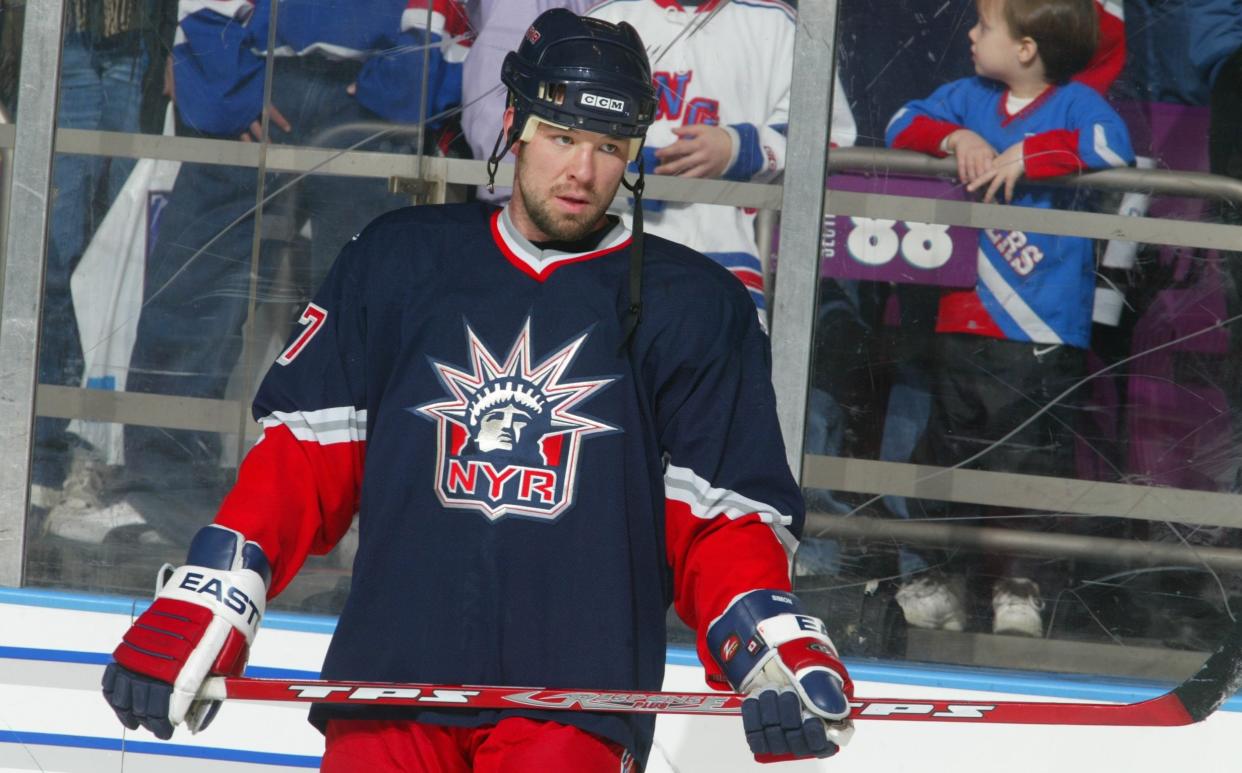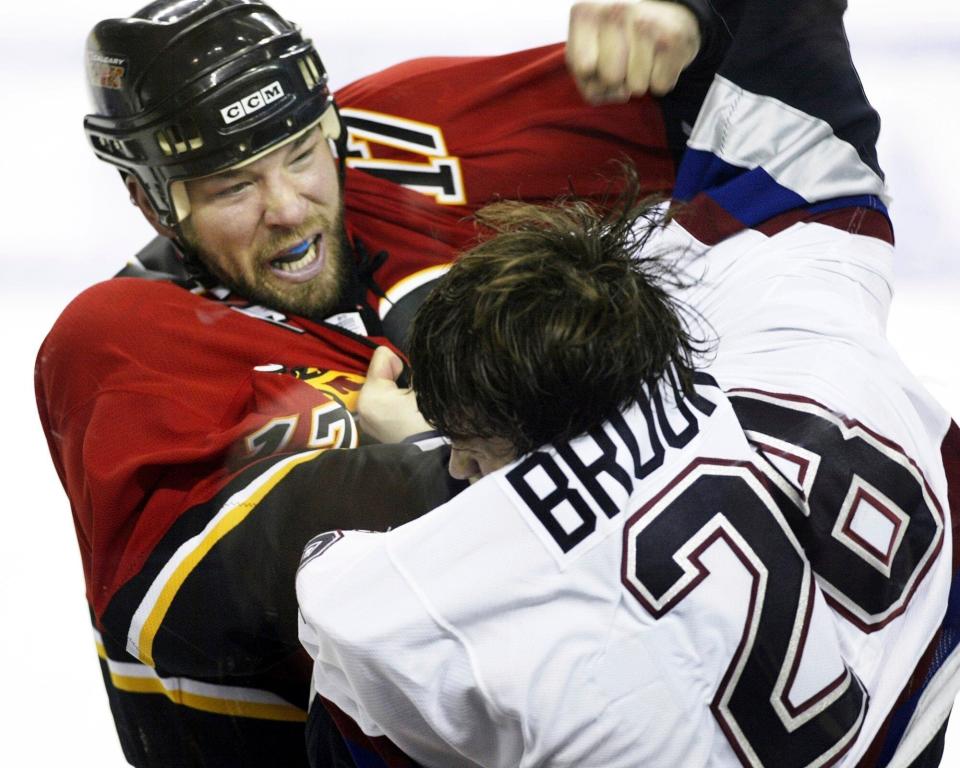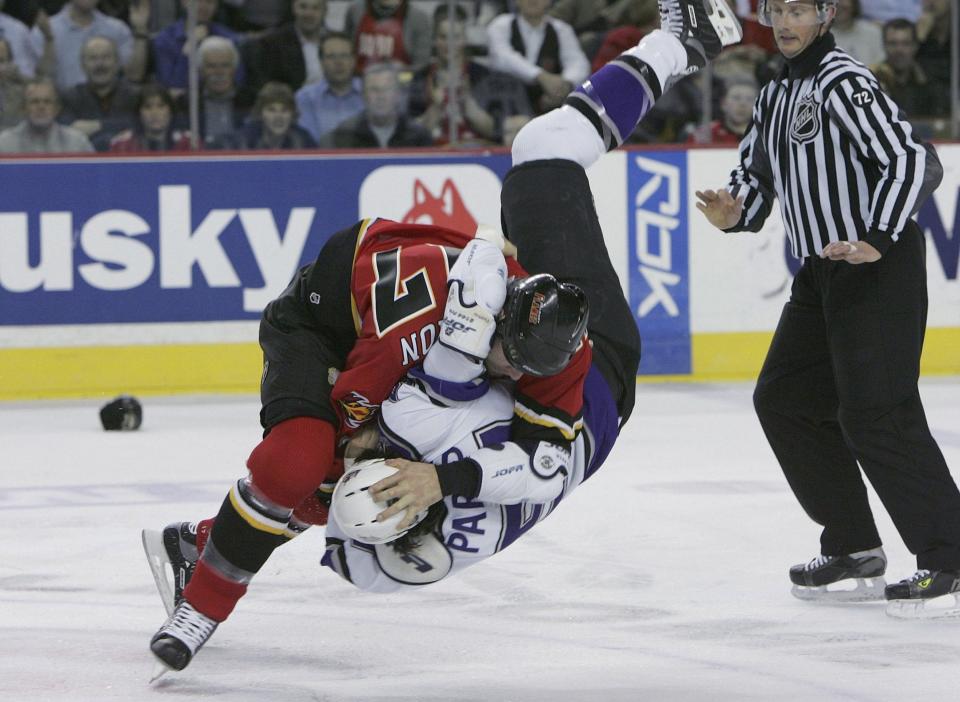Chris Simon, ice hockey ‘enforcer’ notorious for his violent play who won his sport’s highest prize – obituary

Chris Simon, who has died aged 52, was one of ice hockey’s toughest “enforcers”; he overcame teenage alcohol addiction to become the fearsome linchpin of a string of teams in the National Hockey League, and won the 1996 Stanley Cup with Colorado Avalanche, but he took his own life, believing that he was suffering from chronic traumatic encephalopathy (CTE) thanks to a lifetime of taking hits to the head.
The job of the enforcer in ice hockey – a sport in which fighting is expected by the fans and has long been routinely tolerated by the authorities – is nominally to protect teammates against dirty play and deter the opposition from getting stuck in. The fans see the enforcers as working-class heroes, cleaving to old, no-nonsense values, putting it about on behalf of the little guy.
But the role is becoming increasingly rare, following rule changes that prioritise game speed and goals ahead of fighting, as well as an increasing awareness of the damage done by repeated blows to the head. In the old days, the enforcer was often a player with limited talent but a sizable mean streak; these days they have to be skilful, too.
Christopher Simon was born on January 20 1972 in Wawa, Ontario, and was descended through his father from the Ojibwa indigenous people. He began his hockey career in the juniors for Wawa Flyers, followed by Ottawa 67’s and Sault Sainte Marie Thunderbirds of the Ottawa Hockey League, and Halifax Citadels of the NHL’s development league, the American Hockey League.

He developed a drink problem in his teens but was helped to sobriety by his Thunderbirds coach Ted Nolan. By then he had already established himself as a formidable presence on the ice and served several suspensions, including a 12-game ban for breaking seven of an opponent’s teeth and inflicting a wound that required 21 stitches. In his final season with the 67’s, 1990-91, he was banned eight times – twice by his own team – for a total of 34 games.
His NHL career began in 1992 with Quebec Nordiques, with whom he spent three seasons. In 1995 they became Colorado Avalanche and immediately won the Stanley Cup – the biggest prize in ice hockey.
Simon then left and spent eight years with Washington Capitals, followed by stints with Chicago Blackhawks, New York Rangers, Calgary Flames, New York Islanders and Minnesota Wild, before winding up his career with five seasons in Russia. During his time in North America he clocked up 1,824 penalty minutes and suffered two of the longest suspensions ever handed out by the NHL.

In 2007 he received a 25-game suspension for hitting New York Rangers’ Ryan Hollweg in the face with his stick. And in December that year he was banned for 30 games without pay for stamping his skate into the foot of the Pittsburgh Penguins forward Jarko Ruutu. The NHL said he had “repeatedly evidenced the lack of ability to control his actions”.
In total, he was suspended for 65 games during his NHL career – yet was seen as a role model by indigenous Canadians for his accomplishments.
In retirement Simon ran a hockey school for a while, before it went bust, and in 2017 he filed for bankruptcy: in court his lawyer said that he was unable to work, suffering from CTE, depression, anxiety, PTSD and arthritis.
Following his death the deputy NHL Commissioner Bill Daly denied that there is a connection between head trauma and CTE – which can only be definitively diagnosed by a post mortem – but Simon’s suicide may add a note of urgency to the current discussions within the sport about eliminating the role of the enforcer altogether.
Chris Simon married, firstly, Lauri; they had a son but divorced, and he married, second, Valerie; they had four children but also divorced.
Chris Simon, born January 30 1972, died March 18 2024

